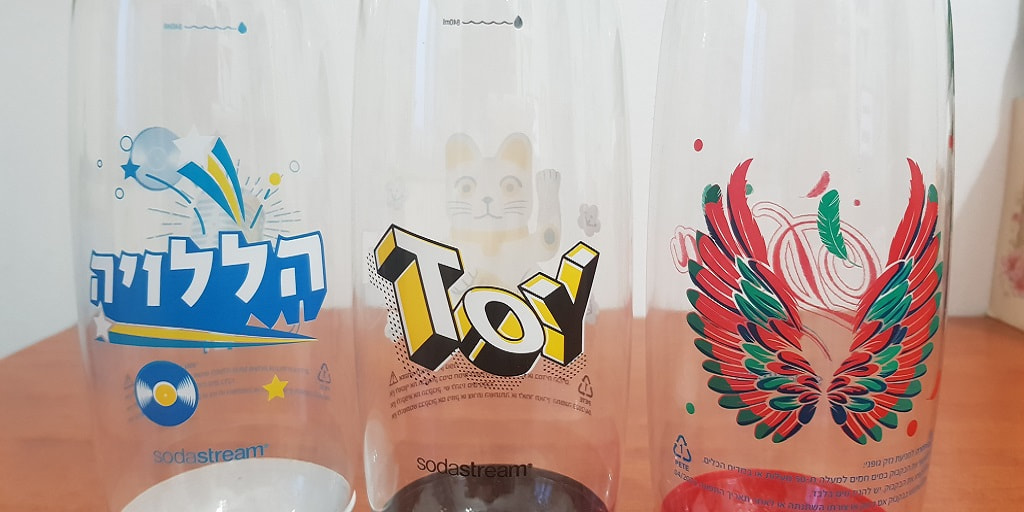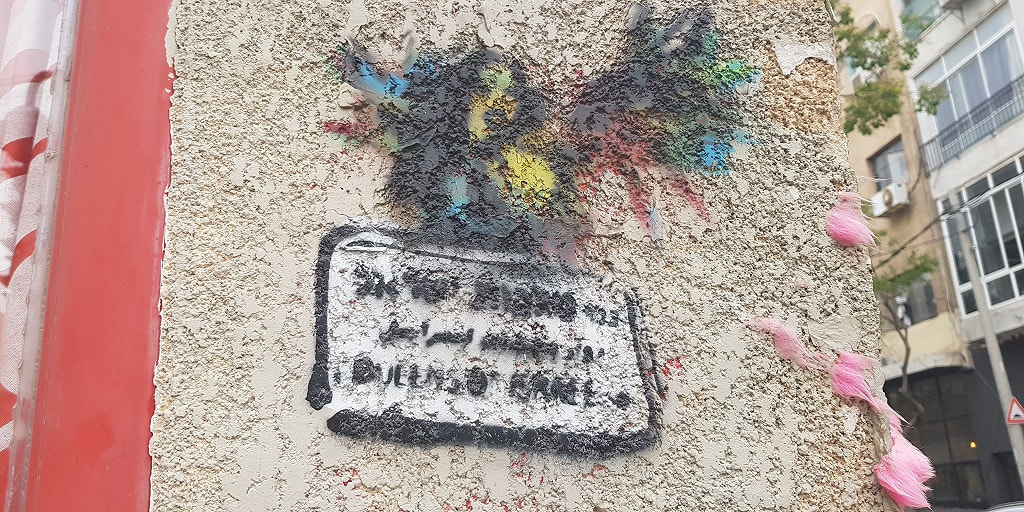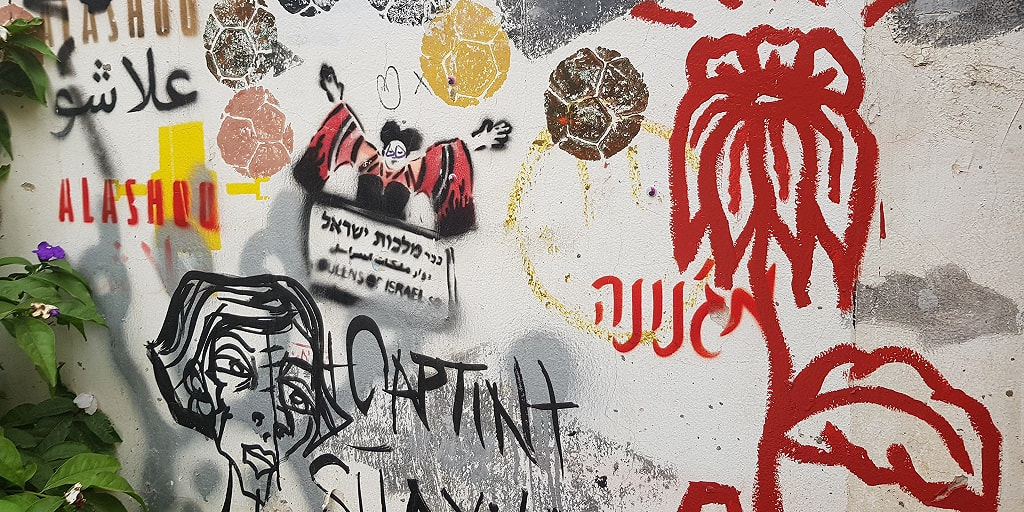The Eurovision is a huge event for Europeans and other countries who take part in the contest. This year, in a few days, the Eurovision Finals will be hosted in Tel Aviv. These Finals are a much-anticipated event here in Israel, especially in Tel Aviv. People are expected to come from around the world to perform in the Eurovision, judge the Eurovision, or be in the live audience of the Eurovision. It will be 63rd Eurovision contest and the third time the Contest is held in Israel. It was held in 1979 and in 1999, both times in Jerusalem.
Why is the Eurovision Final such a big event in Israel? Why are Israelis so excited to be hosting the event? What is the story? In order to better understand what all the hype is about, we have to have some background about the contest’s history, and Israel’s role in it. It’s not always a given that we know what it’s all about, especially if we’re from places outside of Europe and countries who participate in the Eurovision. So, what is it all about?
General Story of the Eurovision
The Eurovision is a singing contest between European countries. There are countries who participate but are not part of the European Union. Israel is one of those countries as the Israel Broadcasting Authority (IBA) is part of the European Broadcasting Union—the host of the contest. The Eurovision began in 1956 as a way to bring hope to European society, and to bring people together. We have to remember that this a time when WWII’s end was eleven years out, and we’re eleven years into the Cold War between the United States and the Soviet Union. Tensions leading to the building of the Berlin Wall. Europe is really just beginning to see the recovery of WWII’s aftermath.

The European Broadcasting Union wanted something that would bring people together instead of pulling people together. When meeting in 1955 and 1956, they come up with several ideas—one of them is the idea of a contest where participating countries would enter a singing performance. Judges would have the ability to give 8 points, 10 points, and 12 points to three different countries. And then the voting is opened up to the public. The winner would host the event the next year. The goal was to bring all these countries together. That sense of coming together has been a common theme ever since–the audience dances to and claps after all of the performances. The number of participating countries has grown. And it has become a staple in the European calendar—everyone waits for the event to be aired on Television screens around Europe and the nearby countries.
A-Ba-Ni-Bi by Izhar Cohen and Alphabeta
In 1978, Israel’s representative to the Eurovision Contest Izhar Cohen sang A-Ba-Ni-Bi. It’s a children’s love song using what’s called in Hebrew the Bet language where a “b” is inserted into every syllable of a word. The song has become a Eurovision favorite, being added to a medley of favorites at the introduction of the 2006 semi-finals in Athens, Greece. And later it was performed by Neta Barzilai in 2018. It was the first Eurovision Israel won, enabling Israel to host the 1979 Eurovision Contest. The 1979 Eurovision was the first time the Eurovision was held outside of geographical Europe.
The 1970’s began on a rocky note for Israel: in 1972, members of the Black September organization kidnapped and killed 11 Israeli athletes in the Munich Olympics. The Yom Kippur War lasted three months in 1973, and it took a huge toll on Israeli society. But despite the rocky beginning, the 1970’s turn around for the better. This was a huge deal for Israel—to win on an international scene was huge. The year before Israel won the European Basketball Champions Cup in 1977. At the end of the game, basketball star in 1977, Tal Brody, exclaimed “We are on the map! And we are staying on the map—not only in sports, but in everything!” And a year later we win the Eurovision Contest with a song about love. The 1970’s was a time of great cultural development and victory for the State of Israel.
Hallelujah by Gali Atari and Milk & Honey
In 1979, the Eurovision was held in the International Convention Center in Jerusalem. It was hosted by Daniel Pe’er and Yardena Arazi. Israel performed the song Hallelujah, a song about gratitude. For the second time in a row, and in general, won the Eurovision Contest. Israel became the third country until that point to win two years in a row, after Spain (1968 & 1969), and Luxemburg (1972 & 1973). Israel finishes off the 1970’s with a strong bang, with two Eurovision victories, a European Basketball Championship, and hosting the actual Eurovision Finals.
It was a simple song, reflecting a time when people took the opportunity to stop and be grateful for the little things—singing, having a tomorrow, being in the world. Today, life has become so hectic with technology, work, extra circular activities, volunteering activities, and so much more. Sometimes we forget to be grateful, even for the big things, never mind the small things that are mentioned in the song. I think today we can use this song not only as a reminder to be grateful, but also as a reminder of maybe a simpler time without all of the buzz of social media, technology, etc.
Diva by Dana International
In 1998, Dana International (aka Sharon Cohen) won Israel’s third Eurovision Contest victory. Her song, Diva, talks about strong women in history from Cleopatra to Queen Victoria. She won with 172 points from the judges and general audiences. What was so amazing about this win is that Dana International is a transgender woman. Assigned male at birth, she came out as transgender at 13. She gave a voice to millions of transgender people around Israel, Europe, and the world at large. It was a moment that showed that the transgender community being included in wider society and the entire society benefitting from her performance and song.

There were some critics who were against her
performance in the Eurovision. When she won in 1998, she published a statement
regarding her identity:
“My victory proves G-d is on my side. I want to send my critics a message of
forgiveness and say to them: try to accept me and the kind of life I lead. I am
what I am, and this does not mean I don’t believe in G-d, and I am part of the
Jewish Nation.” She has created a voice for the Transgender community in
Israel, in the Middle East, and around the world. And this is incredibly
important as it has influenced aspects of daily life outside of the Eurovision.
Toy by Neta Barzilai
In 2018, Neta Barzilai walks up to the Eurovision stage, and performed her song “Toy.” It was a favorite among followers, judges, and participants of the Eurovision Contest. Neta’s goal in the song was to empower people who are labeled as “different” in society—overweight people, “weird” people, the unpopular kids at school. She wanted to give them a voice and a stage. But her song also gave validation to the #MeToo movement, with the sentence “I’m not your toy, you stupid boy.” Even Americans connected to this song, which is uncommon for a Eurovision song (the United States is not a contestant in the Contest).

There was great anticipation in Israel for the 2018 Eurovision. Israelis across the country stayed up late in order to watch the whole event. I remember staying up long enough to watch her performance, which I thought was brilliant. Before falling asleep before the end of the event, I told my husband to wake me up if she was going to win. And sure enough, a little while later my husband woke me up in time to watch her victory. It was an amazing moment that brought pride to all of Israel. As a country, we were so proud of her performance, her message, and Neta’s winning the Eurovision. She brought the Eurovision to Tel Aviv in May 2019.
What’s next for Israel and the Eurovision?
So, what’s next for Israel and the Eurovision? The Eurovision Finals for 2019 are hosted in Tel Aviv, Israel. Our representative is Kobi Meiri, and we are hoping he’ll rank high. Without a doubt, Israel will continue to influence the Eurovision Contest, and rank high. We will also remember the victories of past Eurovision Contests. A-Ba-Ni-Bi, Hallelujah, Diva, and Toy are popular songs in Israeli society today. Even if they weren’t born when these songs were written and performed, Israelis know these songs. There is a new graffiti series in Tel Aviv called “Malkot Yisrael,” or the Queens of Israel—Dana International and Neta Barzilai are part of this series.
I hope that what Tal Brody said back in 1977 continues to be true—may we continue “to stay on the map[,] not only in sports, but in everything!”


